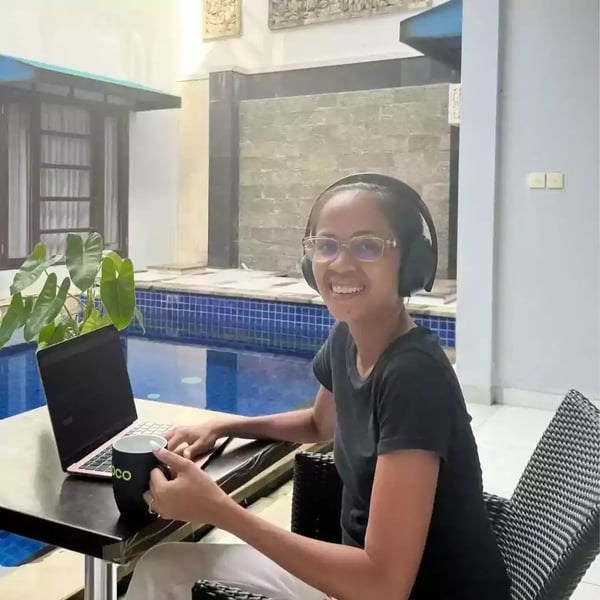In today's interconnected world, it is increasingly common to have international teams. As the leader of QOCO's Commercial & Marketing teams, I manage a diverse group of individuals from seven different cultural backgrounds, spanning across the globe. This diversity is now the norm, and as a result, the expectations of leadership have evolved. To be an effective leader, it is crucial to understand and embrace the diverse cultural and social backgrounds of your team, ensuring that everyone feels valued and heard. In this post, I will explore the secrets to successful leadership in a diverse and global setting. I will discuss how to build effective teams, attract top talent, handle conflicts within the team, and discover sources of motivation for colleagues.
Let’s start with building a team. How do we find and hire the best candidates?
In today's competitive job market, finding and hiring top talent is a challenge for every company. At QOCO, we tackle this challenge head-on by focusing on the innovation our products bring to the market. Whether it's digital tooling control or data exchange management, we're leading the way in our industry.
When we look for new team members, we value diversity and seek applicants who bring a fresh perspective, high energy, and professional capabilities. They need to excel in representing us in a complex international business environment. But above all, they must embody credibility and be able to thrive in our unique culture of openness.
Our team actively explores blind applications that pique our interest, leveraging our extensive network and connections. We rely on our trusted crew members, as well as the influential network of our Boards and Advisors. While our HR spearheads this process, it requires significant time and effort. However, the rewards are immense when we discover the ideal candidate.
Managing conflicts within the international team.
As a leader, it's crucial to manage conflicts and differing opinions within your team. Embracing diverse viewpoints is not only essential, but it should be expected and demanded by any good leader. I firmly believe in creating a team that feels comfortable expressing their own thoughts and ideas. By doing so, we can achieve the best possible outcomes for our business. Encouraging conflicting opinions is a sought-after practice in my leadership approach. I intentionally prompt individuals to challenge their own perspectives and encourage team members to defend or oppose the ideas we're considering. This fosters critical thinking and allows for thorough discussions. I never claim to have all the answers myself, but collectively, as a team, we increase our chances of making the right decisions. If we make a mistake, we're quick to adjust our course if the data shows we were wrong. However, even in failure, we gain valuable knowledge and insights. Building and maintaining trust among team members is crucial for this process. Trust is earned and given in equal amounts, but it's incredibly difficult to regain once lost.
How to motivate a diverse team?
Embracing diversity is a core value at QOCO. Our team boasts a high percentage of employees with non-Finnish backgrounds, creating a unique blend of cultures and perspectives. But what truly fuels our team's motivation? It comes from the DNA of our employees. Over the past two years, I've witnessed an innate drive in our team members to rise to the occasion, support one another, and excel at their work. Motivation isn't simply a matter of money or time off for us - it's about taking pride in what we do and striving for excellence as a united team. To foster this motivation, we offer various tools, including employee ownership, which allows everyone to contribute to and benefit from our collective success.
In conclusion, I would like to add that effective leadership in a multicultural environment requires many skills like cultural awareness, communication, adaptability, and active listening. At the center of all multicultural leadership is inclusivity, diversity, and learning for the betterment of every member of the team. By cultivating these skills and values, leaders can create a collaborative, supportive, and inclusive environment where team members thrive and become even more productive. The benefits are limitless from insights about each other's cultures, potential access to new and different markets, and better decision-making by having diverse perspectives. Effective multicultural leadership is possible with a commitment towards your team members and by being intentional in your approach.
 Andy Graham
Andy Graham
 If you are interested in knowing how you can improve your efficiency in maintenance operations, book a 30-minutes discovery call with us.
If you are interested in knowing how you can improve your efficiency in maintenance operations, book a 30-minutes discovery call with us.

